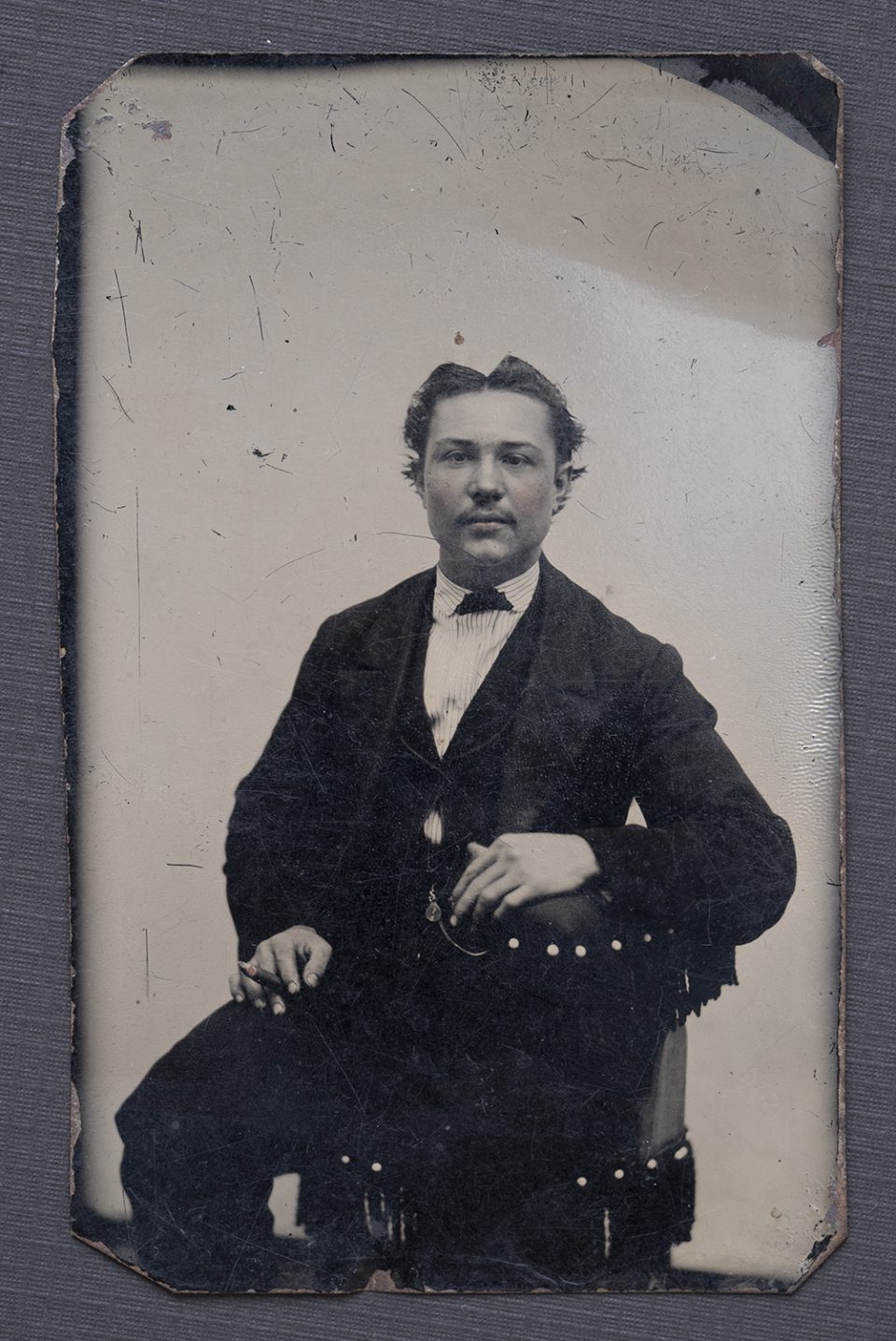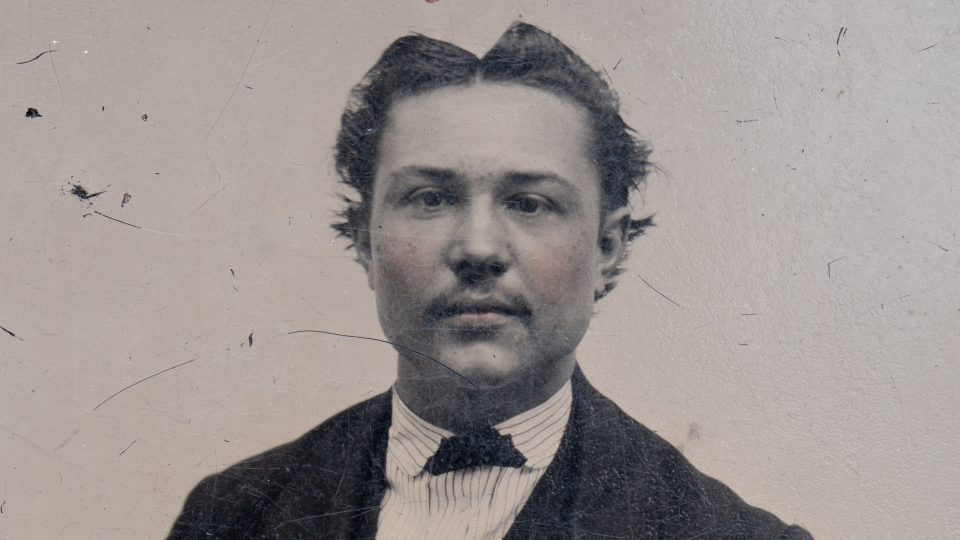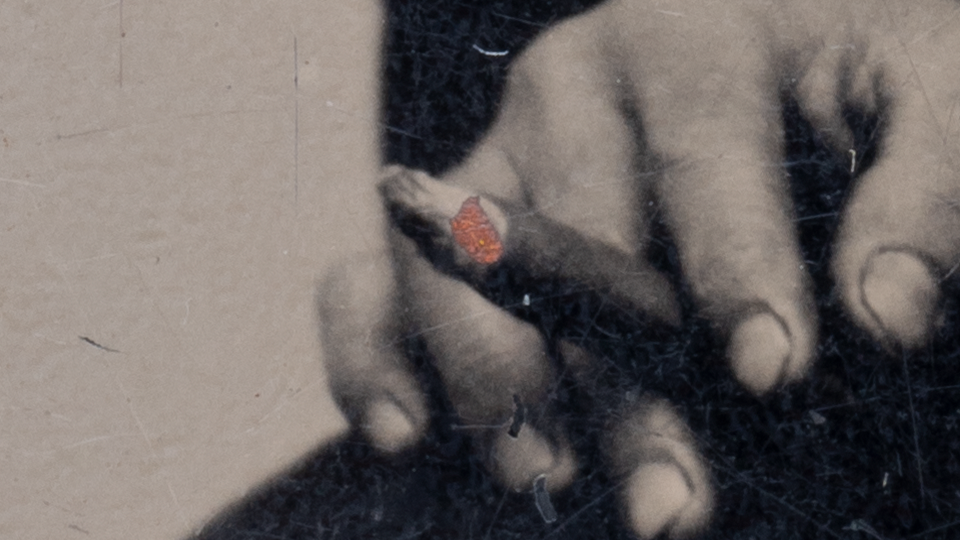In this blog post and video, we examine a 150+ year old tintype portrait for clues to a man’s life
When someone is born in 2021, they’ll have hundreds — if not thousands — of photos taken of them by the time they’re six months old. In the mid-1800s, people may have had only a few photographic portraits made in their entire lifetime — maybe only one — or even none.
That means having a photo made was an important event. I feel that importance when I hold one of these old photos — like this tintype.

This attentive and quite present gentleman is the subject of this video. I have to say, he looks game, with his direct gaze and unruly hair. The photographer tinted his cheeks and put some color in his lips, which I find to be so incredible.

In spite of his adult trappings, he looks to be all of 20 years old. Look at his tiny bow tie. Notice his belly peeking through his vest. He chose to pose holding a cigar in his dirty fingers. The dirt around his fingernails tells us that he worked for a living. At first I thought the photographer had even added some red to the tip of the cigar, but upon closer inspection I think it might be a fleck of red rust peeking through.

I have no background on this photograph — no studio name, no location, no date — nothing.
I bought it in a batch of photographs that seemed to all come from the area around Gettysburg, Pennsylvania. There were studio portraits from York, and Littlestown, so perhaps this young man lived in that area too. I’ll never know.
About tintype photographs
Tintypes were at their most popular use from the 1850s through the 1870s, but they were made even into the early 20th century, and even today they are still being made by some specialists. I’m guessing this portrait was made in the 1870s.
Tintypes were imaged on thin metal plates coated in black lacquer that held the light sensitive emulsion. The darks in the image are actually the black undercoat showing through, with the developed silver reflecting the highlights.
The tintype process makes a single positive original — meaning that there’s no intermediate negative. Each one you shoot in the camera is a unique original one of a kind — and while I’ve read that some cameras used mirrors, almost all tintypes are flipped. You can see his reversed image in the video.
What became of this man? What did he accomplish in life? What’s left of his existence? Does he have descendants? The only thing I know for certain is his image still exists — he still looks out at us with his eager, eternally youthful gaze — full of life and full of promise. A fraction of a second of his life still carries on forever.
We may never know his story, but Through the miracle of photography combined with through the miracle of the internet — he won’t be completely erased by time.
Books about tintypes on Amazon*
Thanks for reading
Be sure to visit me on Facebook, Instagram or Pinterest, or on my website at keithdotson.com.
~ Keith
*This is an Amazon Affiliate link. I may earn a small commission on qualifying purchases.
